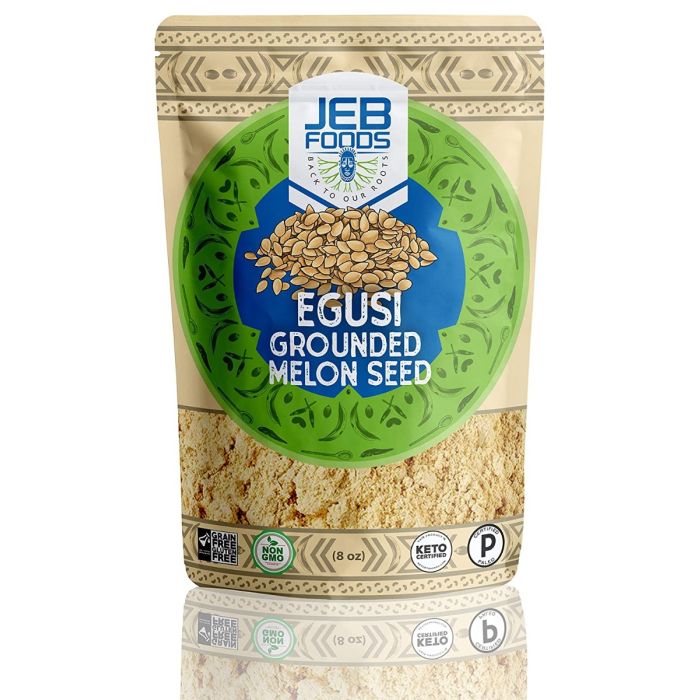 USA
USAJEB FOODS: Egusi Grounded Melon Seed, 1 lb
- Orders shipping
Shipping to USAUnited States
USAUnited StatesMethod Condition Cost ($) USPS/UPS - 3 days Transit Time 0.00 lbs - 0.99 lbs $6.99 FBA - Select ONLY if ordering FBA or WFS prep services. 1.00 lbs - 1,500.00 lbs $0.00
- 78 % of the fat is unsaturated fatty acid, which is protective to the heart.
- The alpha-tocopherol found in egusi is a component of vitamin E that helps in maintaining smooth young skin and good fertility.
- It also contains palmitic, stearic, linoleic and oleic acids important in protecting the heart.
- The egusi can also be an important supplementary baby food, helping prevent malnutrition.
- Blending the seeds with water and honey produces a milky liquid that can be used as formula if breast milk is unavailable.
Size and Dimensions
| Dimensions | Size | Unit |
|---|---|---|
| Weight | 1.25 | lb |
New to egusi? Egusi, also known as the melon seed is widely used in the preparation of a number of African food dishes, including egusi soup, egusi pepper soup, okra, and egusi vegetable soup, egusi fried vegetable. A very rich, but expensive vegetable oil is also produced from this seed.
In West Africa, a region where soups are integral to life, Egusi is a major soup ingredient and a common component of daily meals. Coarsely ground up, they thicken stews and contribute to widely enjoyed steamed dumplings. Some are soaked, fermented, boiled, and wrapped in leaves to form a favorite food seasoning. Families in some West African countries can eat the crop year-round and it is in high demand from countries in the Central African sub-regions too.
The seeds are often shelled and can be eaten individually as a snack, many processed forms of the seeds have made their way into common cooking practices. After soaking, fermenting, or boiling, the seeds take on different flavors and are frequently added to thicken soups and stews. On their own, the seeds can also be roasted and ground into a spread like a peanut butter. With further preparation, the egusi-seed meal can be pressed into patties to be used as a meat substitute.

